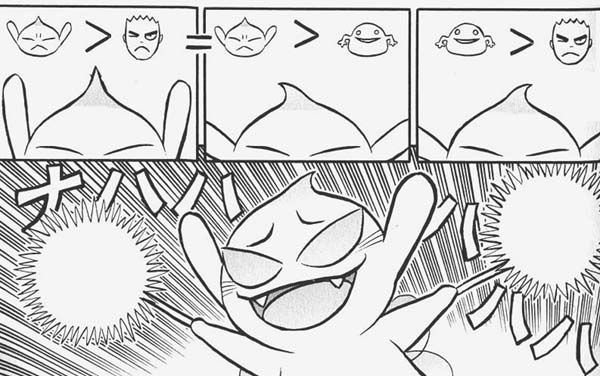First it took him being psychologically destroyed, attempting suicide, and having his guilt manipulated by the Godhand, and he was still reluctant. Then Guts approaches him in his pitiful state, and his last bit of pride or self-preservation pushes him to fully reject his humanity to end his pain at having to confront himself. It wasn't even about his dream anymore, and I thought that that's made very clear by how everything happens. Obviously that doesn't make him a good person, though, but tragic yes.
Even in pursuit of his dream, a key part of understanding Griffith is that he's like a representation of Nietzsche's ubermensch. He's somehow more than even a giant in a peasant's body, and as would come with that (ultimately correct) self-assessment, he has a deep unconscious knowledge that he's meant to greatly influence the world. That conviction alone is enough to serve as the core of his personality and allow him to endure hardships that normal people would break under. It also makes him less than human in some cases, because he has to constantly have his gaze fixed on something abstract and intangible on the horizon which may or may not exist, so he's not really in touch with 'himself' apart from that. Then his entire former identity is dissolved, but he still has that unconscious knowledge of what he is or what he's meant for, now in a broken body and being entirely defeated by his circumstances. Realistically he has to give up on his dream, and he does. When it comes back it's in the form of desperation or having something to cling to to escape how pathetic he's made to feel. It's that he had humanity, but couldn't bear the pain of it, that drove him to make the sacrifice. It's extremely tragic.
His character is fatally flawed, but it's really not hard to understand why he does what he does, and the answer certainly isn't as simple as that he's just cold blooded. He both really is, and really isn't that.






